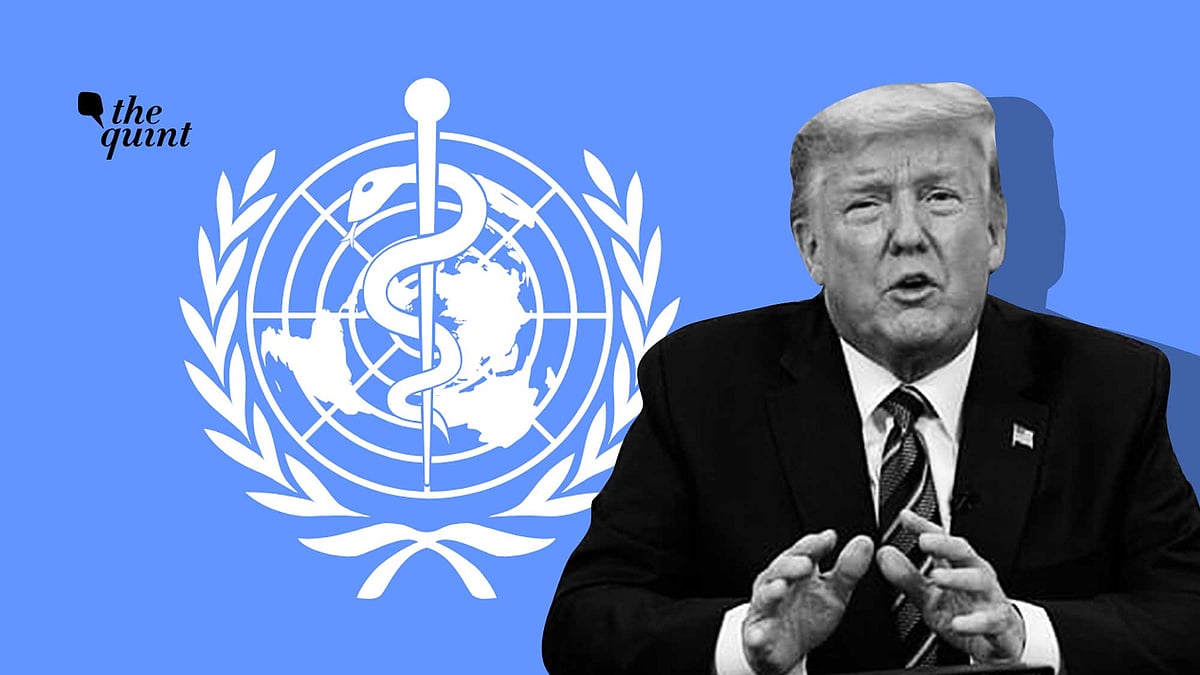US Begins to Pull WHO Funding Amid Pandemic: What Does It Mean?
Trump has accused the organisation of mishandling the initial spread of COVID in China, and being in control of it.

advertisement
The President of the United States, Donald Trump, has formally moved to withdraw the country's funds from the World Health Organization (WHO) after making his intentions clear over the same, in the month of April.
The latest move will heavily burden WHO and put a serious financial strain on its multiple programmes for global health, including on the coronavirus pandemic. However, it will not come in effect till July 2021, reported FIT.
This move, however, has drawn strong criticism from various quarters. The United Nations Foundation said that the “move to formally withdraw from WHO amid the greatest public health crisis that Americans and the world have faced in a century is shortsighted, unnecessary, and unequivocally dangerous,” as per a report in The Guardian.
Here is all you need to know about US’ decision to cut WHO’s funding and what it will mean for the global organisation going forward:
Who are the Members of the WHO?
WHO was established in 1948 to serve as the directing and coordinating authority in international health. It was created with a purpose to improve the health of the world’s population.
It defines health as, "a state of complete physical, mental and social well-being, and not merely the absence of disease or infirmity."
"We work closely with decision-makers: ministries of health, government agencies, other government departments at the national level," says the organisation.
Currently, there are 194 WHO member states, which means the organisation has one more member state than the United Nations, as per a report in The Conversation.
In addition, WHO has 7,000 people from more than 150 countries working in over 150 country offices.
How is the WHO Funded?
As per a report in The Conversation, WHO receives its funds in two ways:
- Assessed contributions
- Voluntary contributions
According to WHO, assessed contributions are the dues countries pay in order to be a member of the organisation.
"Assessed contributions are calculated based on the gross domestic product (GDP) and size of population, but they have not increased in real terms since the level of payments was frozen in the 1980s," says the report.
Voluntary contributions, as the name suggests, can be provided voluntarily by any government, philanthropic organisations and private donations.
What Happens if the US Cuts Funding?
As per report, the US contributes more than $400 million to the WHO per year, though it is already $200 million in arrears.
"It is the organisation’s largest donor and gives about 10 times what China does per year," the report adds.
Such a huge funding cut may lead to bankruptcy for the WHO in the middle of a pandemic. The organisation may then have to fire its staff.
Here is what the report says further:
- The unprecedented move by Trump will also mean that the WHO is less able to coordinate international efforts around issues like vaccine research, procurement of personal protective equipment (PPEs) for health workers and providing technical assistance and experts to help countries fight the pandemic.
- If the US extends these cuts for other global health initiatives coordinated by the WHO, it will likely cause people in low-income countries to lose access to vital medicines and health services.
- There will also be a cost to the United States’ long-term strategic interests.
You can read the full report here.
(With inputs from The Conversation)